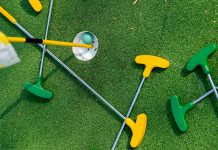Attention Deficit Hyperactivity Disorder or ADHD is a common neurodevelopmental disorder that affects more than 6 million children and teenagers in the United States alone. While the symptoms of ADHD can start in early childhood, most cases cross the age of seven before getting a formal diagnosis.
ADHD affects every aspect of a child’s life, including academic performance and peer relationships. Also, it can take a toll on their self-esteem and make them underestimate their abilities.
Symptoms of ADHD can linger throughout an individual’s childhood and adolescent years. Some patients continue to experience symptoms in adulthood as well. Medical researchers are still working on understanding the causes of ADHD and finding an effective cure for the condition.
However, various types of medications and alternative therapies are available to alleviate symptoms of ADHD. Parents play a crucial role in the early diagnosis and proper treatment of children with ADHD. Apart from medical treatment, they are responsible for providing the child with a nurturing and supportive environment for their overall development.
This blog will take a closer look at ADHD and discuss the available treatment options. Also, it will outline a few alternative therapies and lifestyle changes that can improve ADHD symptoms in children and teenagers.
Impact of ADHD: An Overview
While the precise cause of ADHD isn’t known, scientists and medical professionals believe it is caused by an imbalance in brain chemicals (neurotransmitters).
Typical symptoms of ADHD in children include:
- Hyperactivity
- Restlessness
- Lack of concentration
- Inattentiveness
- Aggression
Children with ADHD are prone to tantrums and angry outbursts. Also, they lack a proper understanding of social cues. They might even come across as rude, argumentative and impatient.
The “hyperactive” aspect of ADHD tends to get subdued as children grow up. However, hormonal changes during puberty can aggravate other symptoms of ADHD.
Teenagers with ADHD experience the following symptoms:
- Disorganization
- Forgetfulness
- Daydreaming
- Distractibility
- Limited attention span
Impulsivity is another characteristic sign of ADHD in adolescents. It can lead them to develop poor judgment and decision-making skills. That, in turn, could land them in dangerous and socially awkward situations.
Teenagers with ADHD are more likely to develop a drinking problem or substance abuse disorder. Also, they tend to engage in risky activities, such as rash driving, thus jeopardizing their safety and wellbeing.
Similarly, ADHD can cause a remarkable degradation in their grades. They might struggle to keep up with school lessons due to learning difficulties. Also, they will have a hard time completing a project before moving to the next one.
Adolescents with ADHD either become aloof in class or try to overcompensate for their shortcomings. They are likely to blurt out answers in class before their teacher finishes a question. Also, they might interrupt lectures with too many questions and remarks.
Poor listening skills are another signature symptom of ADHD in teens. This, in turn, can affect their relationship with peers and teachers.
ADHD Treatment: The Available Options
Parents of children with ADHD know that the condition can wreak havoc on a patient’s academic, personal and social life. It affects their ability to learn, pursue hobbies and build relationships.
That emphasizes the importance of identifying the right ADHD treatment options. one that combines medication, therapy and lifestyle changes.
Medications for ADHD
The use of Neucon in ADHD is a leading treatment according to patient reports. It belongs to the category of methylphenidate hydrochloride drugs. It is a stimulant medication that balances various neurotransmitters and improves ADHD symptoms.
Apart from Neucon, other stimulant medications for ADHD include:
- Dextroamphetamine (Adderall and Mydayis)
- Lisdexamfetamine (Vyvanse and Elvanse)
- Dexmethylphenidate hydrochloride (Focalin and Xaggitin)
Non-stimulant medications include atomoxetine, antidepressants, clonidine and guanfacine.
It is important for parents to consult a licensed medical professional or mental health expert before administering these medications. An expert can help correctly diagnose ADHD and prescribe the right medication dosage. Also, they will advise parents on the side effects of different medicines.
Therapies for ADHD
Parents need to understand that medications are only a part of the ADHD treatment plan. Most children need a mix of behavioral therapy, social therapy and other alternative treatments alongside medicines.
Typically, the following techniques are used for the treatment of ADHD:
- Behavioral therapy
- Social skills training
- Psychotherapy
Each therapy aims to help children grasp their emotions and better understand social cues. Behavioral therapy involves the use of praise and rewards to incentivize good behavior. Psychotherapy helps children identify and break negative thoughts and behavioral patterns.
It gives an outlet for their pent-up emotions and frustrations. This, in turn, helps them get a better grip on ADHD symptoms. Social skills training inculcates appropriate social behavior in children, thus helping them build and nurture relationships.
Parents should also consider undergoing parenting skills training and family therapy to deal with the stress of handling a child with ADHD. It’ll help them create an environment for the emotional wellbeing of their child.
Lifestyle Changes
As with most developmental disorders, a healthy lifestyle and a balanced diet go a long way to improving the lives of children with ADHD. Parents are advised to talk to their children and outline a daily routine that accommodates their needs. Also, they should consider setting reminders for different tasks that need to be completed in a day.
Similarly, children with ADHD should be given a balanced diet rich in fresh produce, whole grains, nuts and seeds. Zinc and omega-3 fatty acid supplements can help improve brain function and memory.
It is just as important for parents to engage their children in hobbies and group activities. Instead of forcing children to take up specific hobbies, parents should watch for activities they seem to enjoy.
Also, parents of teenagers with ADHD should encourage transparent communication. They should also be familiarized with the dangers of reckless driving, substance abuse and other impulsive decisions.
Final Thoughts
ADHD is one of the most common neurodevelopmental disorders. Nearly 65% of children diagnosed with ADHD will have to deal with the symptoms throughout their lives. The right mix of medications and therapy can go a long way to improve their quality of life. Also, parents should focus on inculcating healthy lifestyle habits to facilitate overall cognitive and emotional development.






















